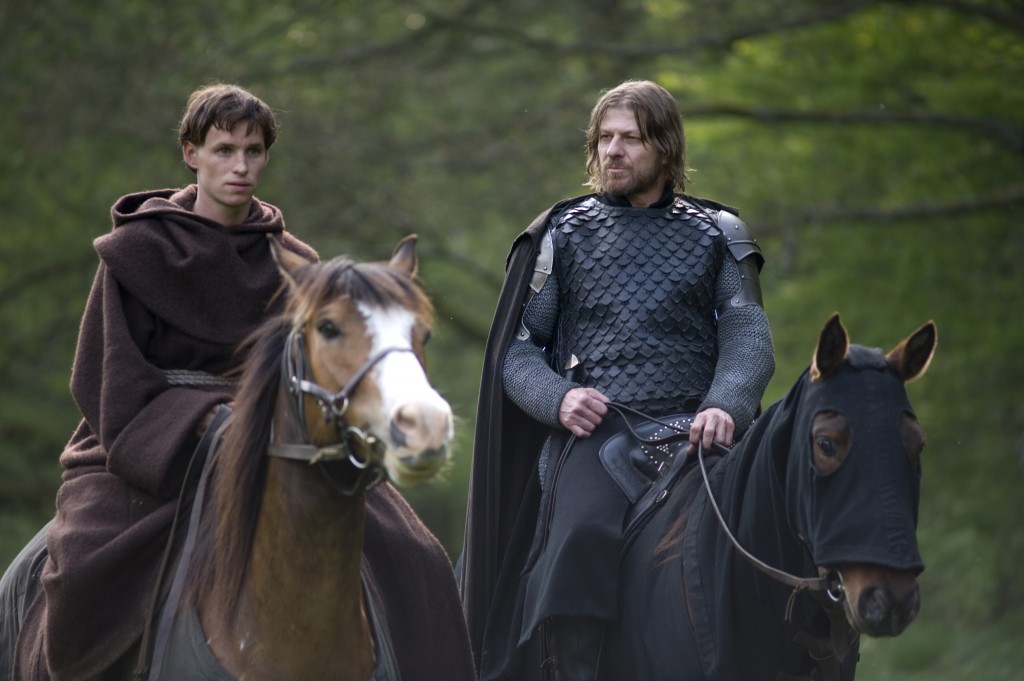Black Death Review
 Black Death is the latest film from British director Christopher Smith (Creep, Severance and Triangle) and stars Sean Bean and Eddie Redmayne.
Black Death is the latest film from British director Christopher Smith (Creep, Severance and Triangle) and stars Sean Bean and Eddie Redmayne.
The film takes place in 1348, a year when the plague had already begun wiping out large populations across Europe and the year it hit UK shores. The plague brought with it fear which quickly began spreading throughout Britain. This fear boosted the already prevalent beliefs in superstition and religion present in Britain at the time. The film Black Death focuses heavily on religion and superstition and it is when discussing these themes of fanaticism that it is most interesting.
At the centre of the story is the character of Osmund (Eddie Redmayne) who is a novice monk torn between the church and his love for Averill (Kimberley Nixon). Anxious to leave the monastery and spurred on by what he believes to be a sign from god he volunteers to accompany a group of mercenaries to an isolated village that is believed to have escaped the plague due to the black magic of a necromancer.
Whilst travelling to the village the group encounter the gruesome physical effects of the plague and also the superstition that has gripped the country. They see flagellants trekking down a river and even interrupt a witch burning. This is a bleak time in history and Black Death pulls no punches in showing the audience the horror of plague victims and also the horror that results from the behaviour of people scared for their lives.
When the group eventually reach the village, after engaging in a brutal hack and slash battle in the woods nearby, they are greeted by an idyllic and serene group of villagers, seemingly untouched by the surrounding devastation and misery. Leading the village is Langiva (Carice van Houten) who appears on the surface to be peaceful and welcoming. The village is obviously not what it seems though and Osmund and the mercenaries gradually realise the true price of this idyllic life.
With very heavy shades of The Wicker Man (the original), Black Death pitches a devout Christian against a pagan group and its leader who desperately want him to renounce his god and succumb to more base instincts. What could be a simple retread of a wonderful film becomes something more; Christopher Smith handles the subject matter brilliantly, bringing depth and multi-layered subtext.
The film is very overtly about faith, religion and superstition but very cleverly constructs a narrative in which both sides represented in the film are held up to scrutiny and I felt there was a clear anti-superstition message running throughout. This is a bold and welcome decision in my opinion and Black Death is all the better for it. There are also interesting comparisons to be made between the story at the centre of the film and modern issues. The religious extremism in both the West and the Middle East are an obvious point of reference, as is the war in the Middle East and Smith uses the backdrop of the 14th century to skilfully explore these themes.
Although not previously a fan of Smith, I found Creep underwhelming and Triangle entertaining but vacuous, I was very impressed by Black Death. I wonder though whether the elements that I found so successful were more the result of the excellent script by Dario Poloni.
That said, the film is well directed and the performances are solid throughout. Black Death is an often gruesome film with a fascinating plot and intriguing twists and turns.